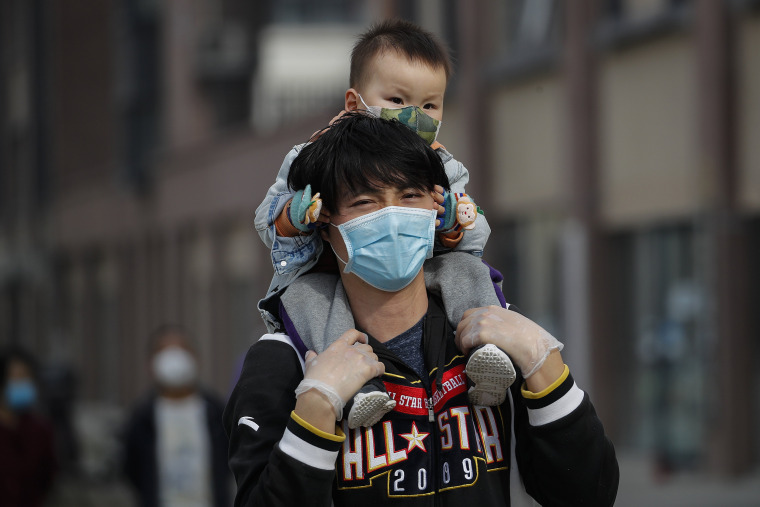The majority of children infected with the coronavirus experience mild to moderate symptoms, although a small percentage have severe complications, according to a study published Monday.
The study examined 2,143 confirmed or suspected pediatric cases of the coronavirus in China, where the pandemic started, and is the largest analysis yet of the illness in children. For the most part, it confirms what doctors have already noticed: that the coronavirus seems to mostly be sparing children, for reasons that are not entirely understood.
Full coverage of the coronavirus outbreak
Of the few children who do develop serious cases, those under 5 are the most at-risk, with infants under 1 year of age at the greatest danger, according to the study, which was published online in the journal Pediatrics.
But even those types of cases were few and far between. A total of 94.1 percent of the children were either asymptomatic or had mild or moderate cases, and only 5.9 percent of them had critical or severe cases, significantly lower than the 18.5 percent of adult patients who fell into that category in China during the same time frame, according to the study authors. Just one child died of the illness in China: a 14-year-old boy in Hubei, the province where the outbreak originated.
The coronavirus and the illness it causes, COVID-19, have infected more than 200,000 people worldwide and killed more than 8,000.
Of the 125 children in the China study who became severely or critically ill, 76 were age 5 or younger. Forty were infants under 1 year old.
The study found no gender differences in which children caught the virus or how severely they got it.
The study is important because it makes clear that children are indeed catching the coronavirus, disproving one possibility that experts had considered about why young patients did not seem to be as affected by it as older ones, said Dr. Buddy Creech, associate professor of pediatric infectious diseases at Vanderbilt Children's Hospital.
"One of the theories that was out there at first was, 'Are children not being as exposed? Are they even getting infected with this?' And this suggests that they definitely are. And they’re at risk for transmitting," he said.
"It lets us know that certainly some children are capable of developing severe disease," Creech added. "Just because it’s much more uncommon for children to get severe disease, these data show it is indeed possible."
Download the NBC News app for full coverage of the coronavirus outbreak
Children's relative immunity to the disease has puzzled experts, who have several working theories for why kids are faring better. As people age, their immune systems weaken; this potentially gives children an edge over the virus and gives their bodies a more controlled immune response to it. Children are constantly exposed to other coronaviruses, including some that cause the common cold, which could give them some cross-protection against this one. Their lungs are also healthier, having been exposed to fewer pollutants, which could help.
The latest theory to gain steam has to do with a receptor that the virus binds to on human lung cells called the angiotensin converting enzyme II, or ACE2, receptor. That receptor is what other coronaviruses, such as the virus that causes SARS, bind to. Children may have fewer or less mature versions of that receptor, which may give them a smaller viral load when they get exposed.
Despite promising signs that children are fending off the virus well, experts caution that premature infants and children with underlying chronic health conditions should still be considered high-risk for developing complications.


